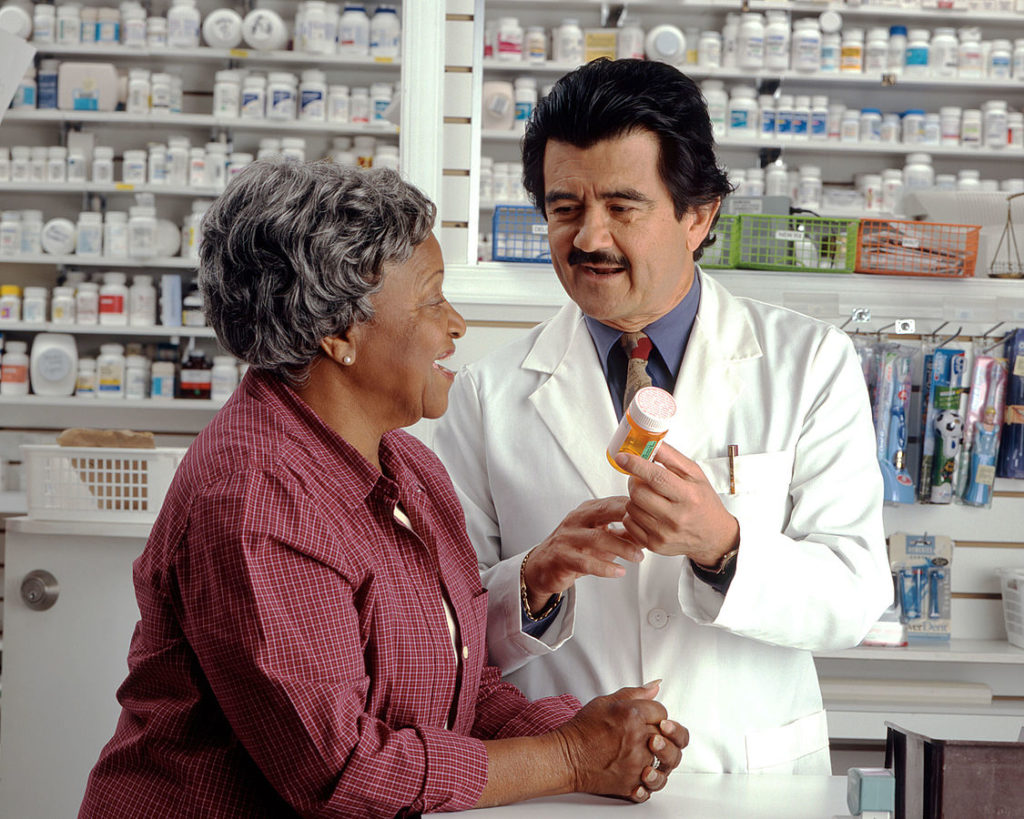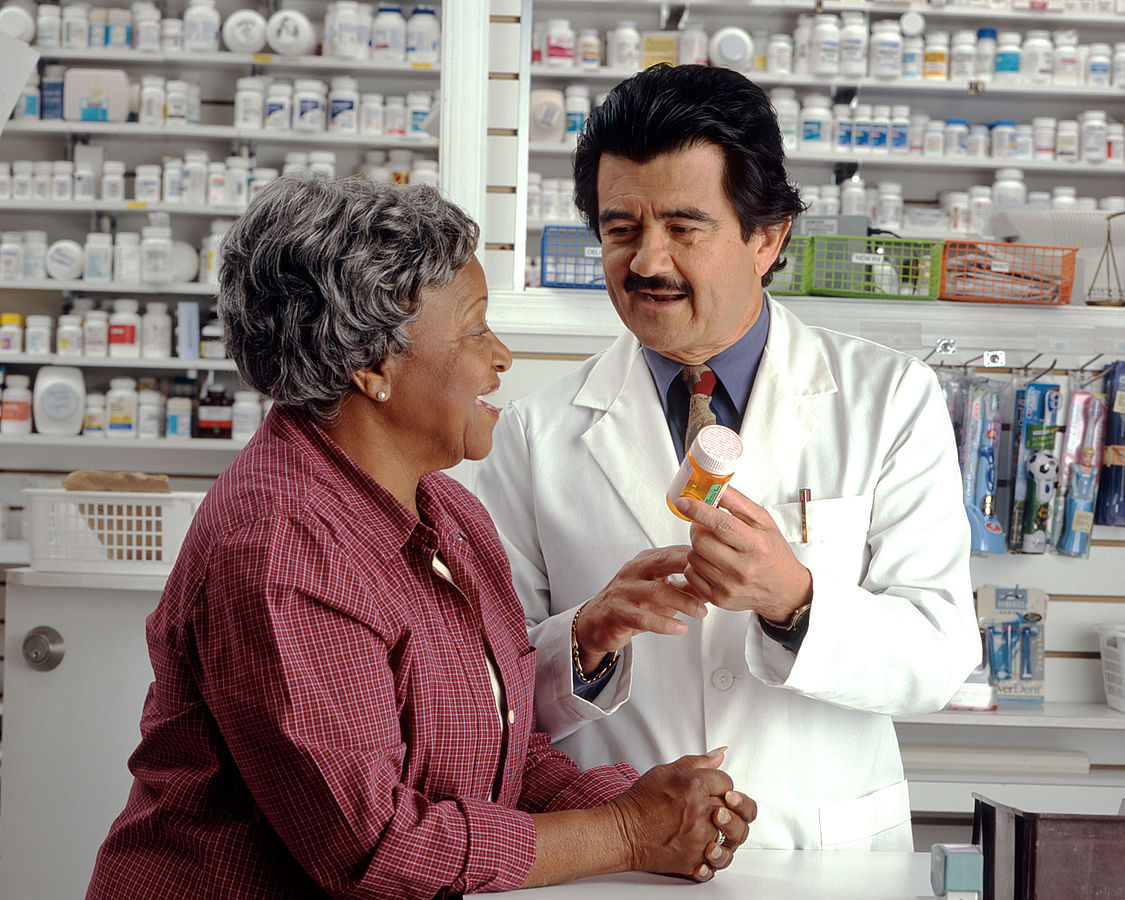by Susan Buchanan. This article originally appeared in the Louisiana Weekly.

Photo courtesy of the National Institutes of Health (NIH)
Elders are among those most vulnerable to dehydration, and African American and Hispanic adults are more likely to become dehydrated than whites, researchers have found.
In a review of health issues after the Gulf Coast’s hurricanes in 2005, the Environmental Protection Agency (EPA) pointed to the dangers of dehydration for older adults. People suffered from heat and a lack of potable water. After Katrina struck that August, dehydration took the lives of many local seniors in nursing homes, hospitals, shelters and their houses. Rita, Wilma and Dennis were other deadly Gulf hurricanes in 2005.
‘Extremely Dangerous’
Beyond access to water, older people are vulnerable to dehydration for other reasons, including a decreased thirst sensation, the EPA said. Seniors don’t feel the urge to drink liquids as often as younger people do. Poor health and medications can add to avoidance of drinks or impact urination.
“Dehydration is extremely serious for the elderly,” said Dwight McKenna, MD, who was sworn in as Orleans Parish coroner in May. He added, “It affects all races. As coroner, I’ve had occasion to witness death by external hypothermia or overheating. The high temperatures and humidity here are a prescription for severe dehydration.”
In a patient-care advisory last February, staff at the Mayo Clinic in Rochester, Minn., explained that dehydration occurs when the body loses more fluid than it takes in, causing a shortage of fluids needed for normal functions. While everyone is susceptible, dehydration is especially dangerous for older adults and young children.
“Older adults naturally have a lower volume of water in their bodies, and they may have conditions or take medications that increase the risk of dehydration,” the Mayo staff said. Minor illnesses, such as infections affecting the lungs or bladder, can cause seniors to become dehydrated.
As people age, their fluid reserves decline, the ability to conserve water ebbs and feelings of thirst become less acute. These factors can be compounded by illnesses, such as diabetes and dementia, and by certain medications, Mayo advised.
Having kidney disease or uncontrolled or untreated diabetes also puts a senior at risk for dehydration. Taking medications that increase urination do too. A cold or sore throat makes older adults susceptible to dehydration because they may not feel like eating and drinking. Some seniors aren’t mobile enough to get a glass of water.
Cancer patients are vulnerable. “Diarrhea, vomiting, fever or excessive sweating, all of which are side effects of many cancer treatments, can cause dehydration,” according to Houston-based M.D. Anderson Cancer Center’s online advice for patients. Dehydration can lead to big complications, including seizures, swelling of the brain, kidney failure, shock, coma and even death, the hospital warns.
The Mayo Clinic advises that severely dehydrated adults be treated immediately by personnel in an ambulance or in a hospital emergency room. The salts and fluids delivered intravenously by medical staffers are absorbed quickly, allowing a patient to recover.
Signs of dehydration include a dry mouth and nose, low urine output, dark yellow urine, decreased skin elasticity, dizziness, fatigue, sleepiness, headaches, confusion, a lack of tear drops and sunken eyes, according to the Mayo Clinic, MD Anderson and other hospitals.
Ethnic Elders
Black and Hispanic American adults are vulnerable. In findings released in April 2016, the National Center for Health Statistics (NCHS), based in Maryland, said: “On average, men and women aged 60 and over, non-Hispanic black men and women, Hispanic men and women, men and women with low physical activity, and men with moderate physical activity consumed less than the adequate daily intake” of water.
These findings were based on data from National Health and Nutrition Examination Surveys (NHANES) for years 2009 to 2010 and then 2011 to 2012. (The surveys are from the U.S. Centers for Disease Control and Prevention.)
In its report, NCHS said 2004 recommendations from the federal Institute of Medicine set adequate daily levels for water intake from all foods and liquids at 3.7 liters, or 125 ounces for men, and 2.7 liters, or 91 ounces for women. Consuming less than those amounts increases the risk of dehydration and kidney stones and can reduce cognitive performance.
A 2017 study by Carolyn Brooks at Harvard and other researchers found that only 29.5 percent of American adults surveyed were inadequately hydrated.
The study revealed that African Americans and Latinos were at greater risk than whites because their tap water was more likely to be unsafe. “Total water intake, that is water from all food and beverage sources, is lower among non-Hispanic black and Hispanic adults than among non-Hispanic white adults,” the researchers found. “Non-Hispanic white adults are more likely to consume tap water.”
Those university researchers examined 2009-2012 data from over 8,000 U.S. adults ages 20 to 74 participating in NHANES. They used urine osmolality, a measure of how concentrated one’s urine is, to determine whether participants were adequately hydrated. They also looked at consumption of tap water and other drinks.
Increased Risk of Falls
Geriatrician John Morley, MD, of the Saint Louis University School of Medicine in Missouri, said recently that a decade of research he and other conducted during the early 200os determined that 10 percent of African Americans were dehydrated.
One reason, Morley said, was the common use of diuretics or water pills prescribed by doctors. “Dehydration makes people dizzy and vulnerable to falls,” Morley said. “Falls can be fatal.”
Morley also said that bottled water wasn’t prevalent until late in the last century. “People were not in the habit of drinking water through the day,” he said. “Today’s bottled water is nice, but not everyone can afford it.”
A 2003 New York University study titled, “Dehydration in Black and White Older Adults Using Diuretics,” by Kristie Lancaster and colleagues, found diuretic use to be significantly associated with dehydration.
According to this study, “There is a risk of dehydration for blacks compared with whites, independent of diuretic use. Blacks have a higher risk of morbidity and mortality than whites, and dehydration can increase their risk. Preventing or treating dehydration early may decrease their risk of morbidity and mortality.”
As for the future, Louisiana will be warmer in coming decades, and floods and droughts may be more severe there, the EPA said in August 2016.
Climate Change
Climate change is expected to increase the number of unpleasantly hot days, raising the incidence of heat stroke, dehydration and other illnesses. High temperatures can affect people’s cardiovascular and nervous systems, the agency said. Hot days can be dangerous for the elderly, children, sick people and those with low incomes.
At the Orleans coroner’s office, McKenna recently advised seniors to stay in cool, ventilated areas during extreme heat, especially when heat advisories are issued. Older people need to be well hydrated. Seniors feeling lightheaded, dizzy or nauseous should seek attention from a physician or urgent care center right away, he said.
Susan Buchanan wrote this article for The Louisiana Weekly with support from the Gerontological Society of America, the Journalists Network on Generations and the Silver Century Foundation.
The opinions expressed in this article are those of the author and do not necessarily reflect those of the Diverse Elders Coalition.

